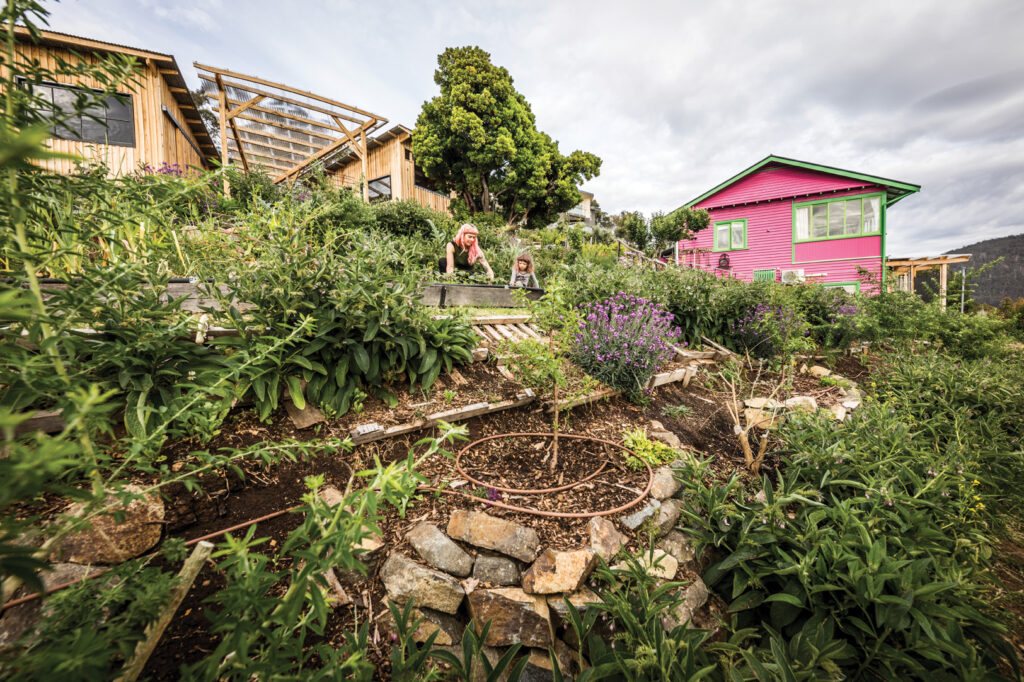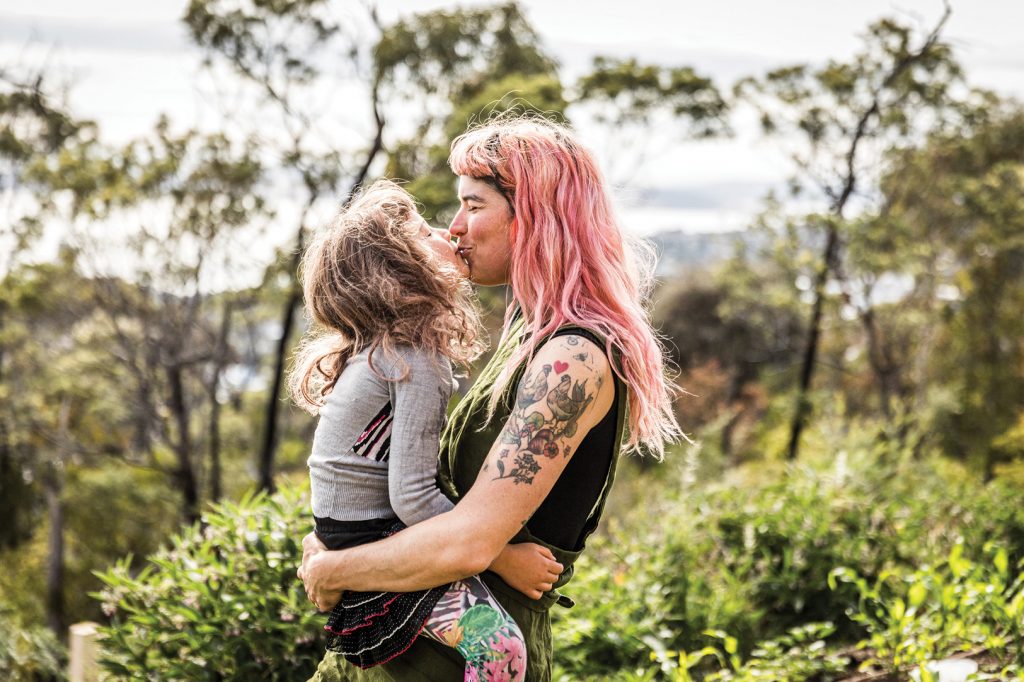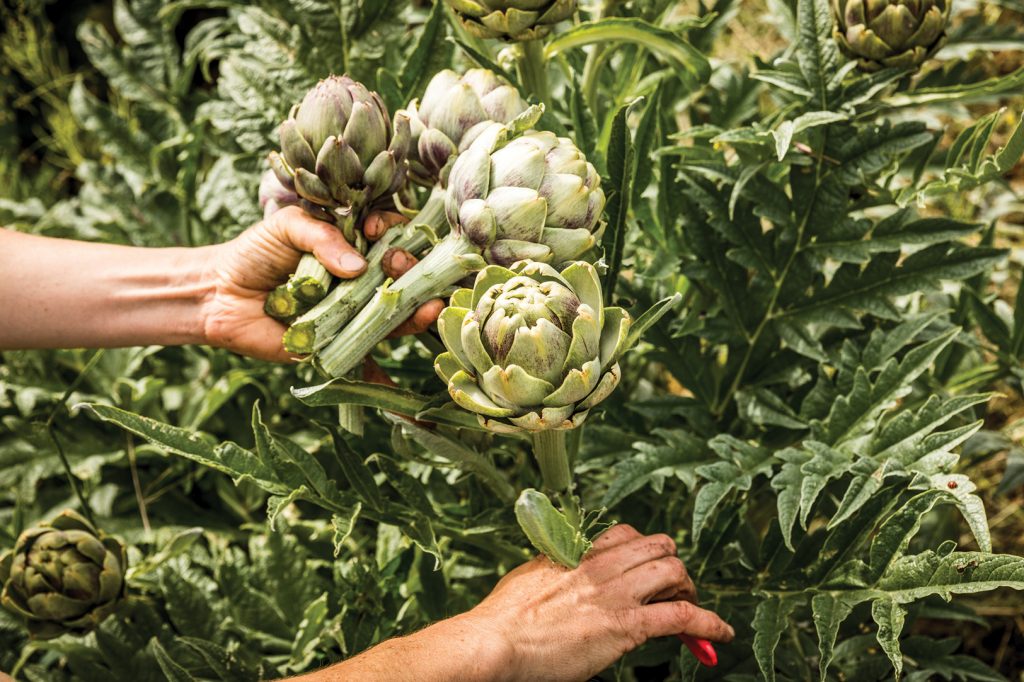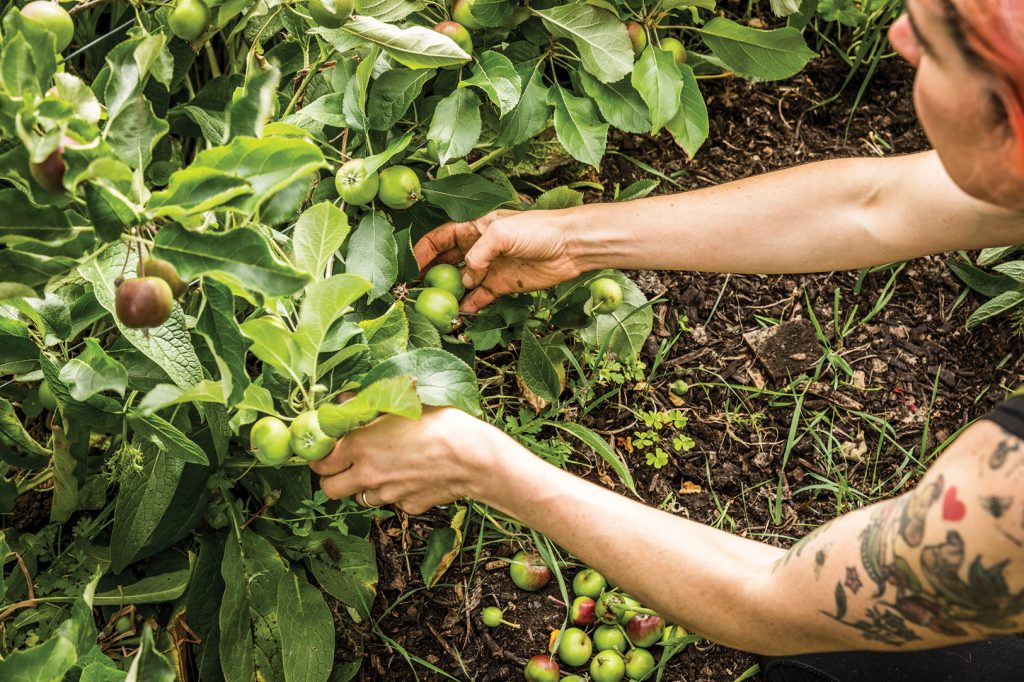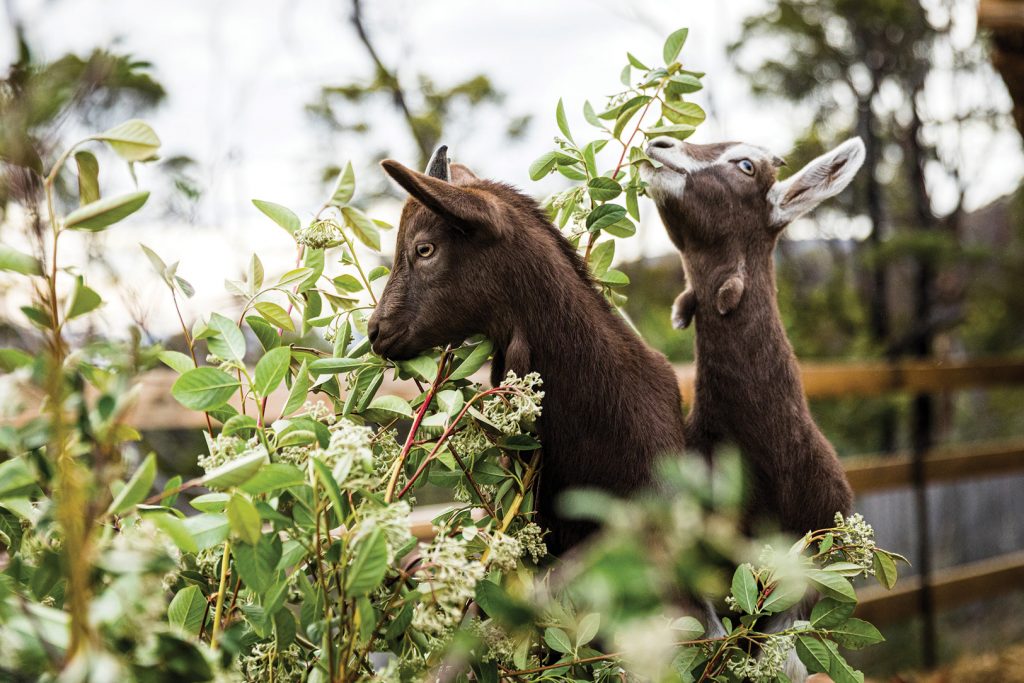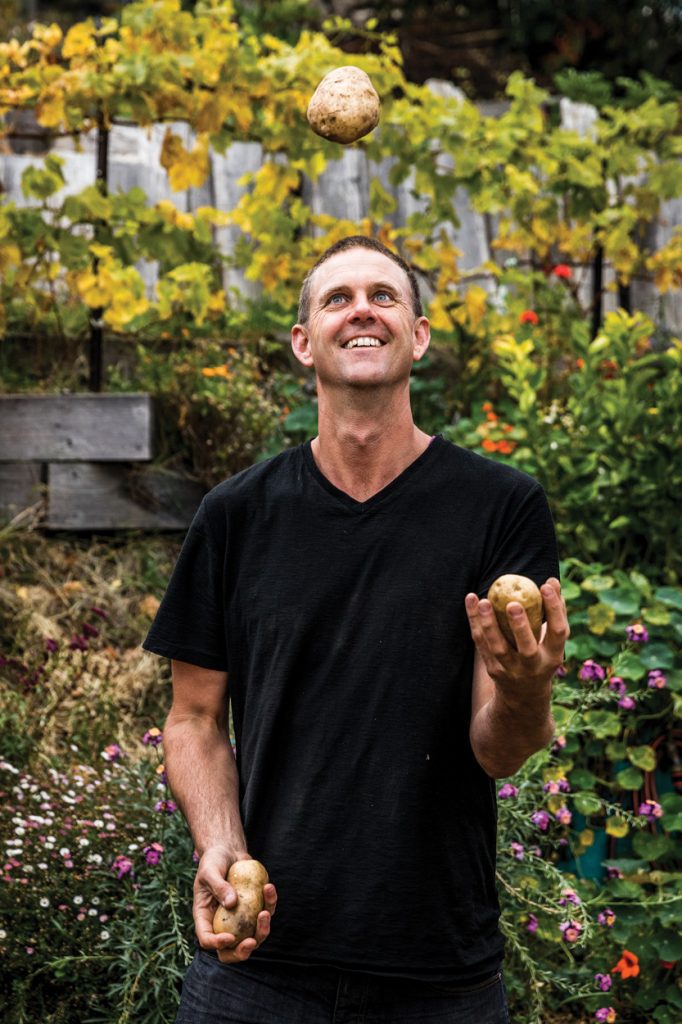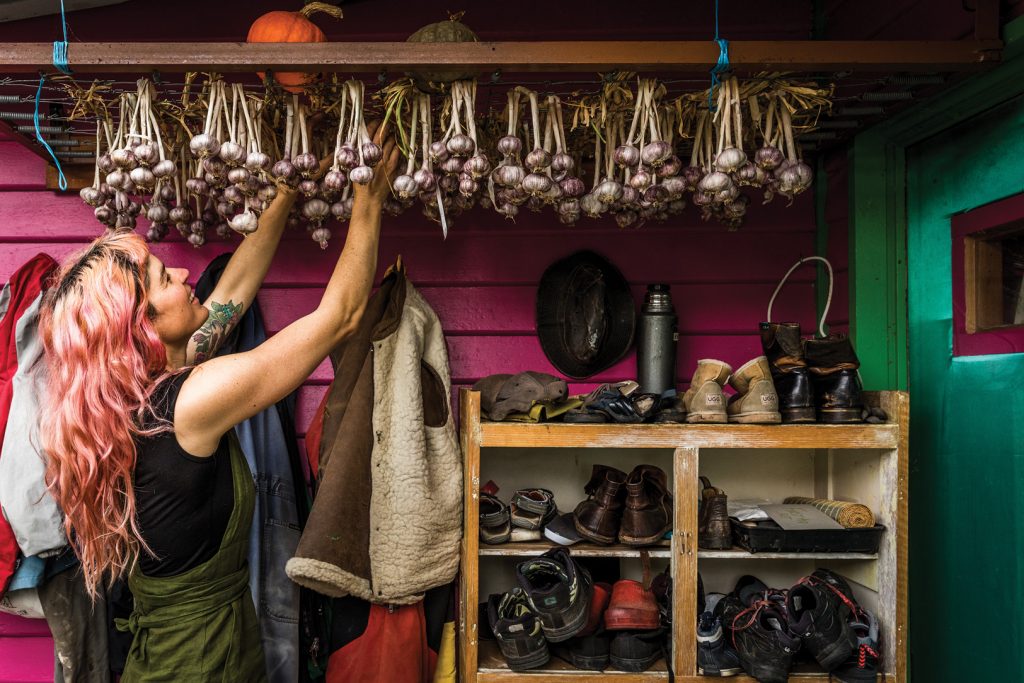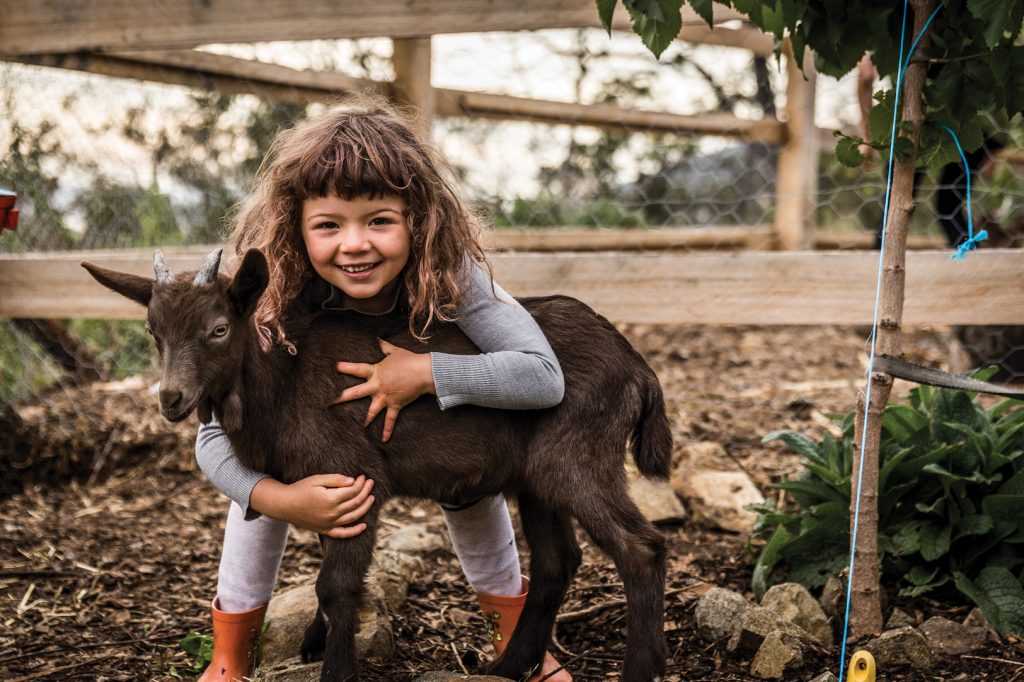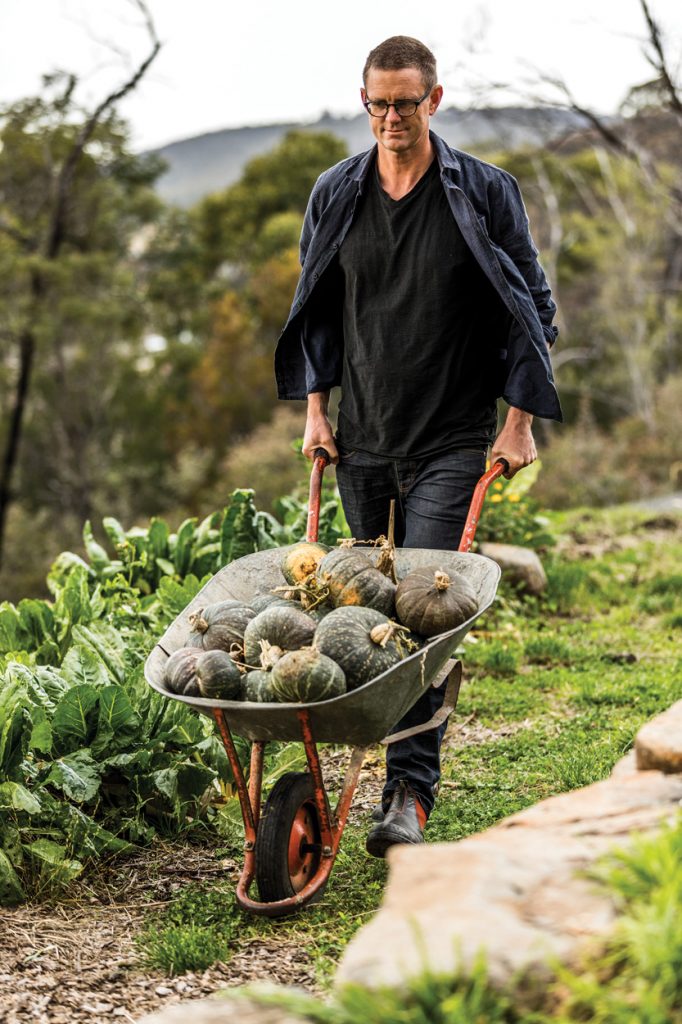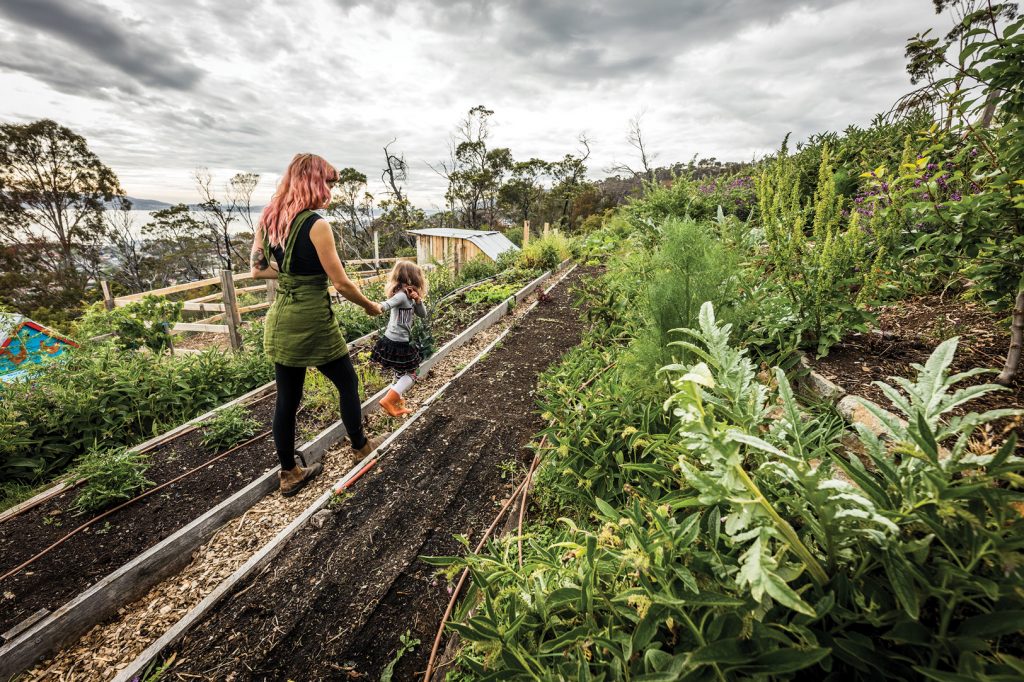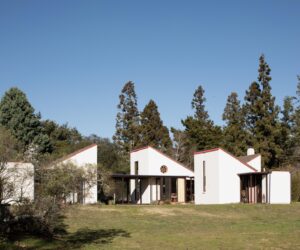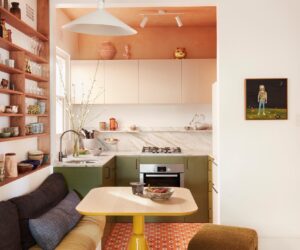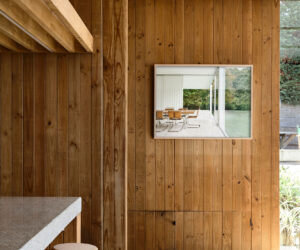Conversation Starter
Conversation, communication, connection and context: four concepts that run through a recent chat with Hannah Moloney, who runs Good Life Permaculture with her partner, Anton Vikstrom.
Up above Hobart (mouheneenner Country, lutruwita, under kunyani), in a pink house, we talk over tea with milk from Hannah Moloney’s sweet-natured goat. Our conversation weaves its way from her horticultural upbringing, through to Cuba and Detroit and their respective garden resurgences, about the debate on the value of ‘weeds’, to Hobart and the power of radical hope.
Hannah was raised working in her parents’ herb ‘farm’ in West End (inner-city Brisbane). She cannot remember a time when she wasn’t deeply connected with plants, the seasons and soil. The concept of an urban farm seems so natural to her she cannot imagine any other way of living, even on the smallest and most city-locked of sites.
Hannah left Brisbane well before the advent of public urban permaculture sites, such as the Northey Street City Farm, but with clear ideas about connections between community and food. Following her training in community cultural development, she set up and managed community gardens. Hannah and Anton now work with urban and small farm clients on the design of their sites, including preparing for activities such as healing the soil, dealing with increasingly hot and dry seasons, selecting the best plants for the context, keeping chickens and other livestock and becoming active participants in the growing ‘chatter’ about urban food production.
Some clients come to them aiming for self-sufficiency; Hannah gently explains that while admirable, it is unachievable on most urban sites. It is better, she says, to aim for radical homemaking, “real, home-based life … bound tightly by hard work, commitment and those things we shape and base our lives on called values and ethics”. As she sees it, there is no demarcation between house and garden; systems and practices flow across the threshold. “Radical homemaking is a very hands-on approach centred around taking responsibility for where your required resources come from.” She also counters the notion that permaculture gardens are self-sustaining, ‘set and forget’ spaces; in fact, they require, “a lot of digging, building, fixing, inventing, creating, constant learning and problem solving”.
I ask her why she so ardently advocates this path: “Because a conversation has to be started,” she replies. “We need a collective awareness of crises. Take the need to eradicate food deserts, for example. Every person in Tasmania has the right to eat good and safe food every meal. There are many individuals doing great things, but we need the collective conversation to increase. We also need leadership to be shown by councils and other authorities.”
Tasmania, she says, is the ideal place to live and for action to occur: “We have a small population, hydro power, a good food-growing climate, tight bio-security and growing networks of like-minded people. It’s the perfect place for amazing things to happen.” She sees education as playing a vital role; this stems from her work facilitating food gardens in schools, in the past.
Hannah and Anton’s latest accomplishment on their own site is a passive design garden ‘shed’ (with a view to die for) and office, with open deck between. This small building is a striking entry to their large rambling garden of tiered vegetable beds, espaliered fruit trees, generous goat enclosure, many compost bins, conversation fire pits and trial windbreaks of endemic sticky hop bush (Dodonaea viscosa). It’s a happy place in which their young daughter Frida Maria can play, but it’s also a highly productive system that is ever-changing, according to conditions, ideas and needs.
